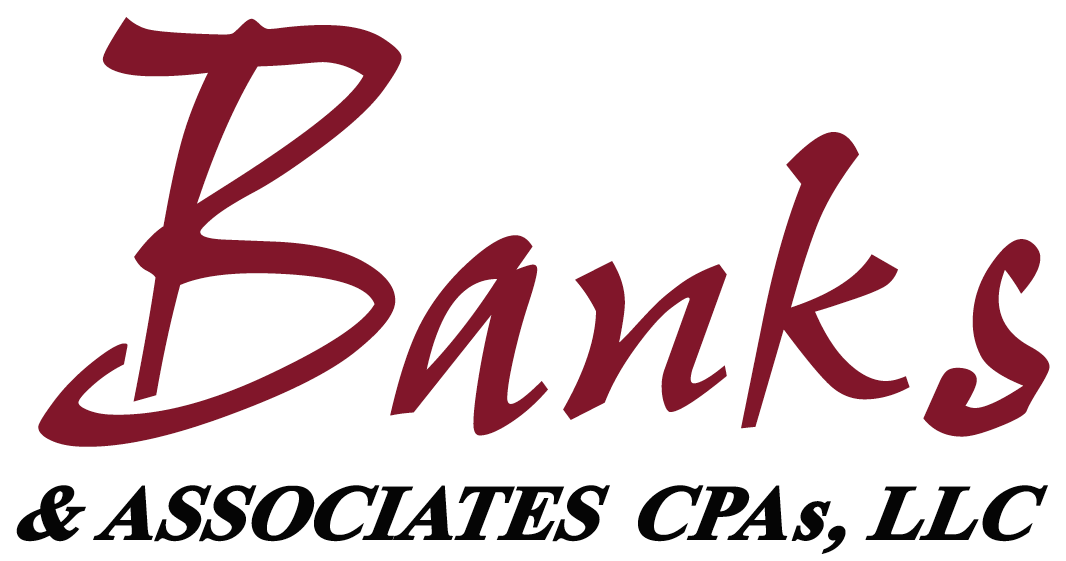Did you know the CARES Act of 2020 Might Benefit You and Your Family?
Overview of the Coronavirus Aid, Relief and Economic Security Act of 2020 (CARES Act) for Individuals & Families
April 5, 2020
Dear Banks & Associates Clients,
The global impact of the Coronavirus (COVID-19) has been significant. As social distancing and various degrees of shutdowns become the norm, many people and businesses are struggling to make ends meet. In response to the significant economic harm that this virus has and will cause, President Trump signed The CARES Act into law on Friday, March 27, 2020. This Act provides an estimated $2 trillion in assistance, including close to $500 billion in individual rebate checks, another $500 billion to support businesses and industries that have seen their operations affected, and $400 billion in tax credits to businesses for wages and payroll tax relief.
Individual Taxpayer Provisions:
The CARES Act provides an advance refund of a newly created 2020 tax credit. Eligible individuals will receive rebate amounts as follows:
$1,200 for an individual
$2,400 for a married couple
$500 for children under the age of 17
However, not everyone is entitled to a rebate. The amount of each check is phased out by $5 for every $100 an individual’s adjusted gross income (AGI) exceeds the following:
$75,000 for single filers
$150,000 for joint filers
$115,500 for heads of households
Based on the phase out formula, the rebates will be completely phased out if an individual’s AGI exceeds the following:
$99,000 of AGI for single filers
$198,000 of AGI for joint filers
$136,500 of AGI for heads of households
This credit is an advancement of a new 2020 tax credit. It is based on your income from either 2018 or 2019. You could still be entitled to a tax credit when you file your 2020 tax return next year if your income drops below the AGI requirements. If your income was below the AGI requirement in 2018 or 2019 but your income is above the AGI limits in 2020, the advanced tax credit will NOT be required to be paid back.
Other provisions for individuals in the CARES Act include:
No additional tax for coronavirus-related retirement plan distributions:
Exempt from 10% penalty
Not subject to mandatory withholding
Can be repaid over three years
Income may be spread over three years
Expanded loan provisions from employer-sponsored retirement plans:
Maximum loan amount increased to $100,000 from $50,000
100% of the account value is available up from 50%
Loan repayments can be delayed for up to one year
Required Minimum Distributions (RMDs) are waived for 2020
Enhanced tax benefits for charitable contributions:
New $300 “above the line” deduction
AGI limitations increased for 2020
Excess contributions can be carried forward for up to 5 years
Student loan relief:
Student loan payments can be deferred until September 30, 2020
Employers can exclude student loan repayments from compensation – up to $5,250 during 2020
Medical expenses have been expanded to include certain over-the-counter medications
Unemployment compensation benefits expanded:
Pandemic Unemployment Assistance – includes self-employed individuals and others who are typically ineligible for unemployment
Federal Government will cover first week of unemployment
Regular unemployment compensation is increased by $600 per week
Unemployment compensation is extended by 13 weeks
Other Changes
While not a part of the CARES Act, other changes have also been enacted in response to COVID-19:
The tax filing deadline has been moved to July 15, 2020, for federal, state, and city taxes.
If you filed your taxes already and you owe tax and you are paying electronically by direct bank withdrawal – your taxes will be withdrawn as scheduled on 4/15/20. You can call the U.S. Treasury Financial Agent at 888.353.4537 to cancel and reschedule your payment.
If you filed your taxes and plan to write a check for taxes originally due on 4/15/20, you can wait and pay your taxes by 7/15/20 and the IRS will consider it timely.
The first estimated income tax payment usually due 4/15/20 has been extended to 7/15/20. However, for now, the second estimated income tax payment is still due 6/15/20.
We’re here to help.
As always, we make it a priority to stay up-to-speed on all things tax and accounting. Please feel free to reach out to us if you have any questions or concerns about the CARES Act or other tax-related developments.

